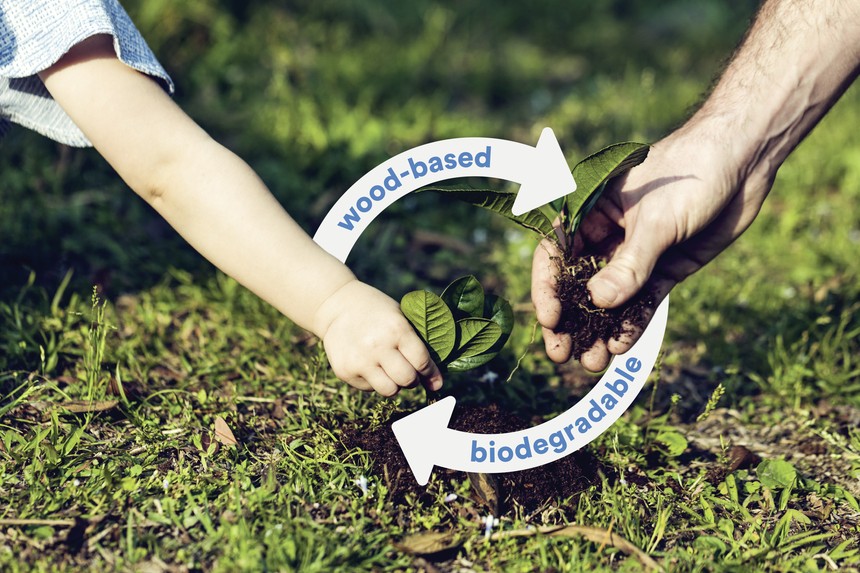
California University confirms biodegradability of Lenzing fibers
YarnsandFibers News Bureau 2021-10-28 14:03:01 – USAThe biodegradability of Lenzing fibers has been validated by the Scripps Institution of Oceanography (SIO) at the University of California. The study published recently has confirmed that wood-based cellulosic fibers biodegrade in the water in a short period of time at the conclusion of their life cycle, making them a better alternative to fossil-based fibers.
The research was the result of an independent project aimed at better understanding the 'end-of-life' situations for textiles and nonwovens that are dumped in the environment. In a press statement, Lenzing stated that SIO has a global reputation for being one of the world's oldest, largest, and most important marine research centers.
In this study, SIO compared the degradation processes of nonwovens made from fossil-based synthetic materials like polyester with those of cellulosic materials like Lenzing's wood-based lyocell, modal, and viscose fibers in specific scenarios – under various real oceanic conditions and controlled aquaria conditions. The findings of these experiments are striking: although wood-based cellulosic fibers biodegraded completely in 30 days, the fossil-based fibers examined remained virtually unaltered after more than 200 days.
Robert van de Kerkhof, member of the managing board at Lenzing Group, said that they have a circular economy business model. They use wood from sustainable forestry and a highly efficient technique of processing all raw materials to make fibers that can be returned to the ecosystem at the end of their life cycle. The nonwoven and textile sectors must evolve. Their goal is to raise public awareness about significant issues like plastic pollution and urge the textile industry to switch to wood-based, biodegradable Tencel, Lenzing, Ecovero, and Veocel fibres.
The biodegradability of Lenzing fibers was also tested in the laboratory of Organic Waste Systems (OWS) in Belgium, one of the world's leading companies in biodegradability and compostability testing, which yielded results that were consistent with those obtained from Scripps' real-world measurements. The OWS evaluation followed appropriate international standards and reflected important natural and manmade variables that could lead to biodegradation. TUV Austria certificates confirm that Lenzing fibers biodegrade rapidly in all test conditions (soil, industrial composting, home composting, freshwater, and seawater) within the time frames set by the applicable standards.
As a result, Lenzing applauds the EU's targeted efforts to fight plastic waste in general, such as the single-use plastic directive (EU) 2019/9043. The EU Commission specifies the precise products that come under this category in its newly issued guidelines for implementing the directive, which is a much-needed effort to bring clarity to EU member states for their united struggle against environmental degradation caused by plastic waste.
Lenzing's wood-based, biodegradable cellulosic fibers could be part of a long-term, inventive solution to this growing man-made problem. The single-use plastic regulation, which goes into effect in July 2021, establishes standardized labeling rules for some products, such as plastic-based feminine hygiene products and wet wipes for body care or home usage, either on the packaging or on the products themselves. According to the press release, this is a first step in addressing the problem: educating consumers and providing alternative materials that are more circular.
Market Intelligence
Ask for free sample Report

experience
Customer Base
dedicated team
Countries Served Worldwide









